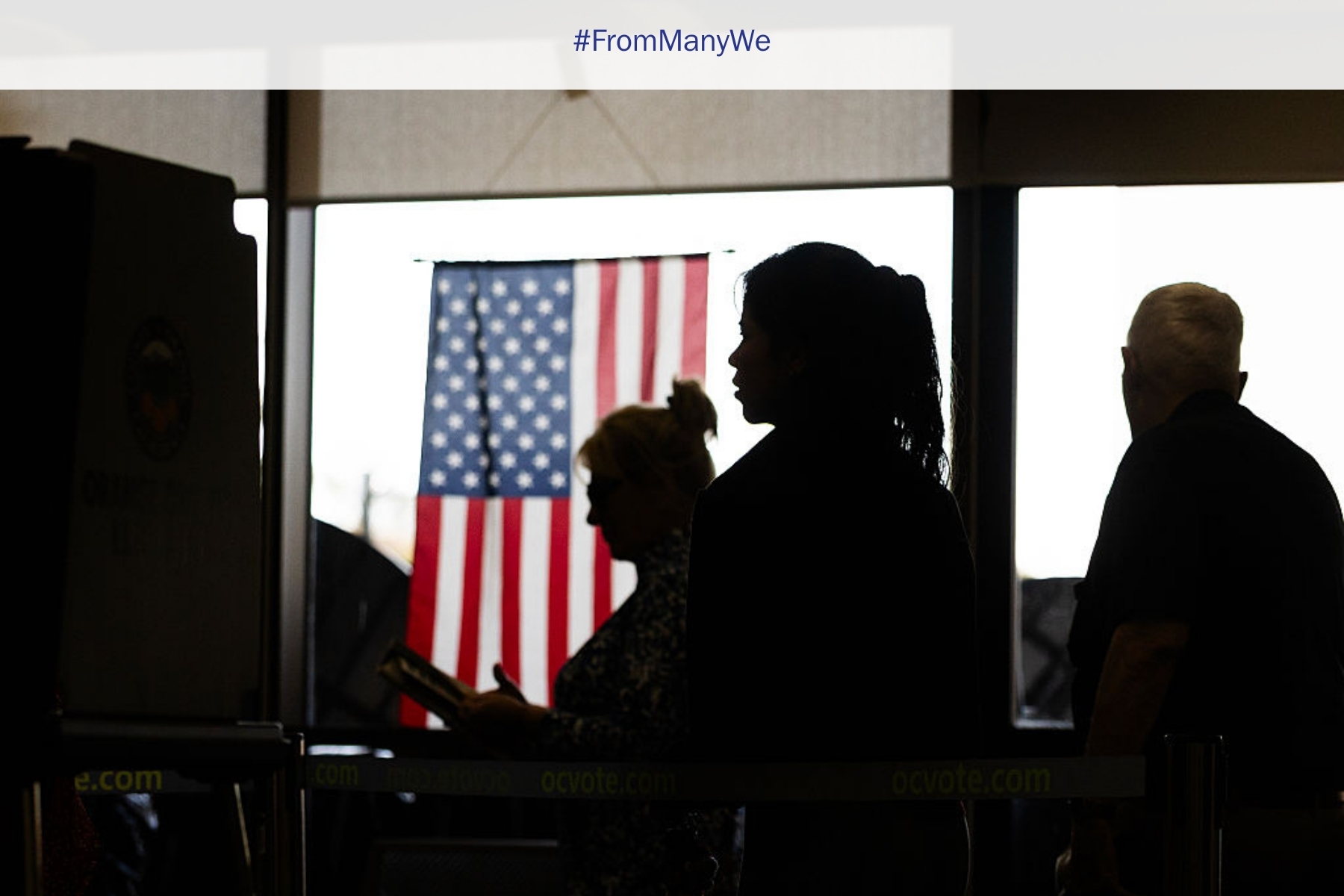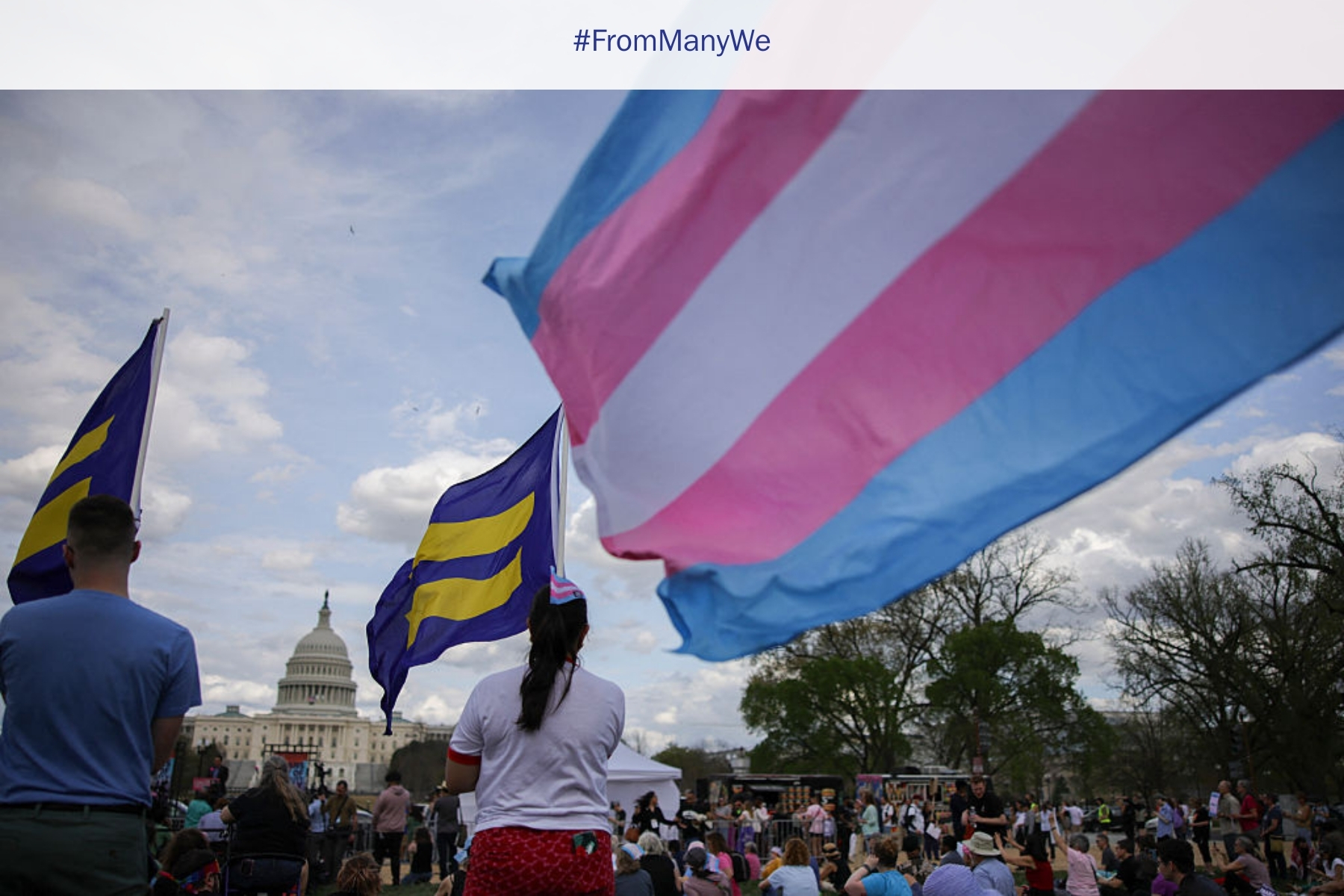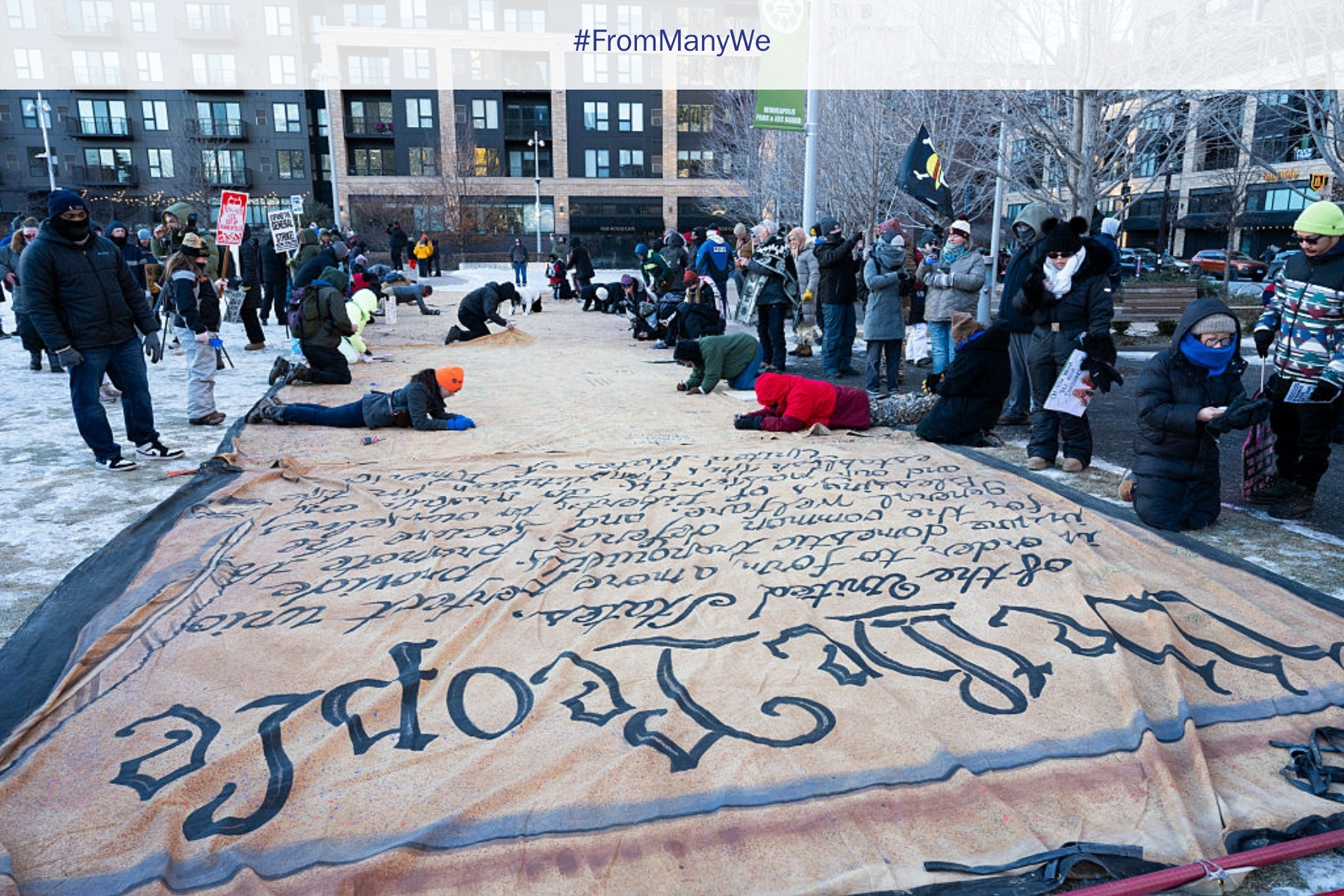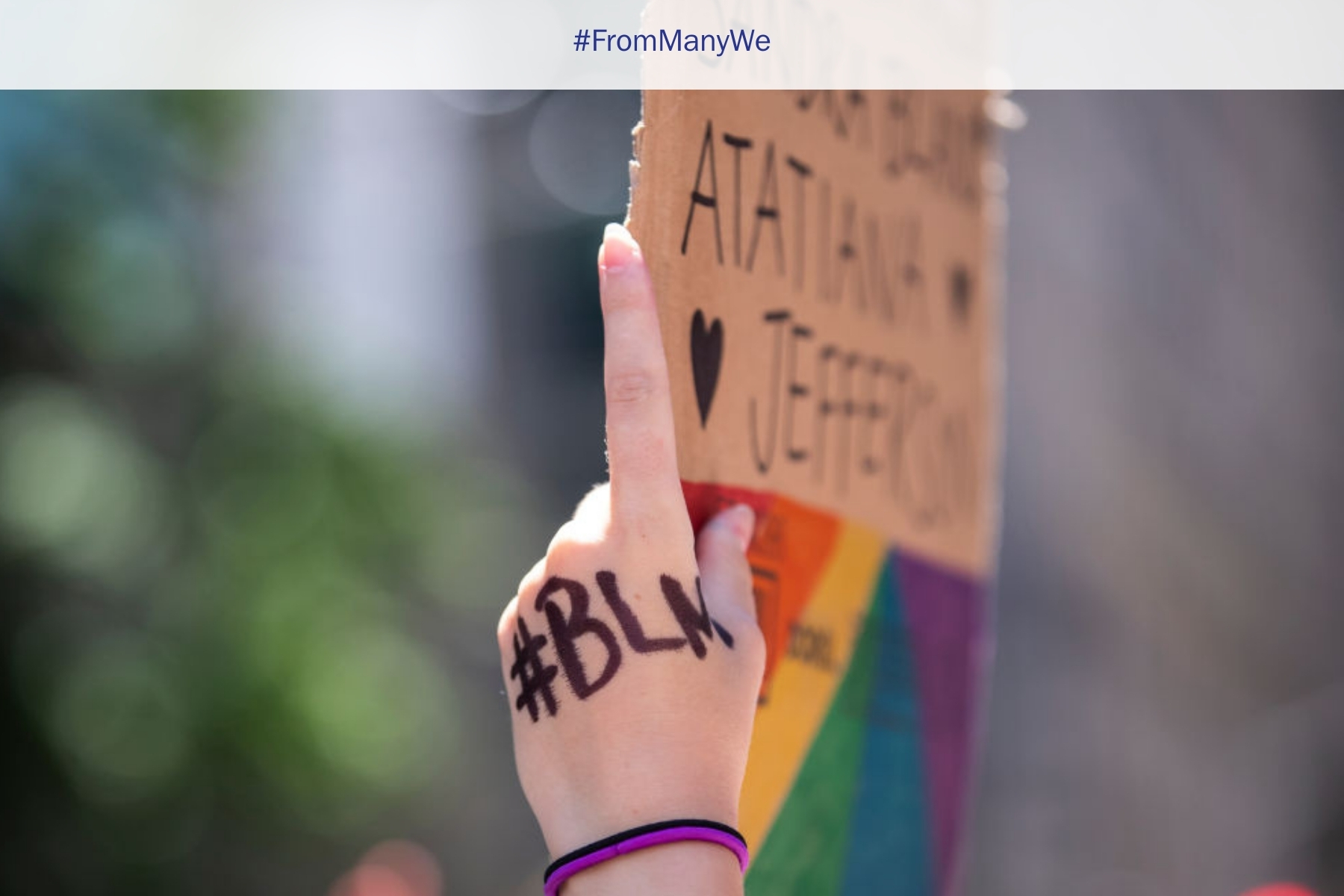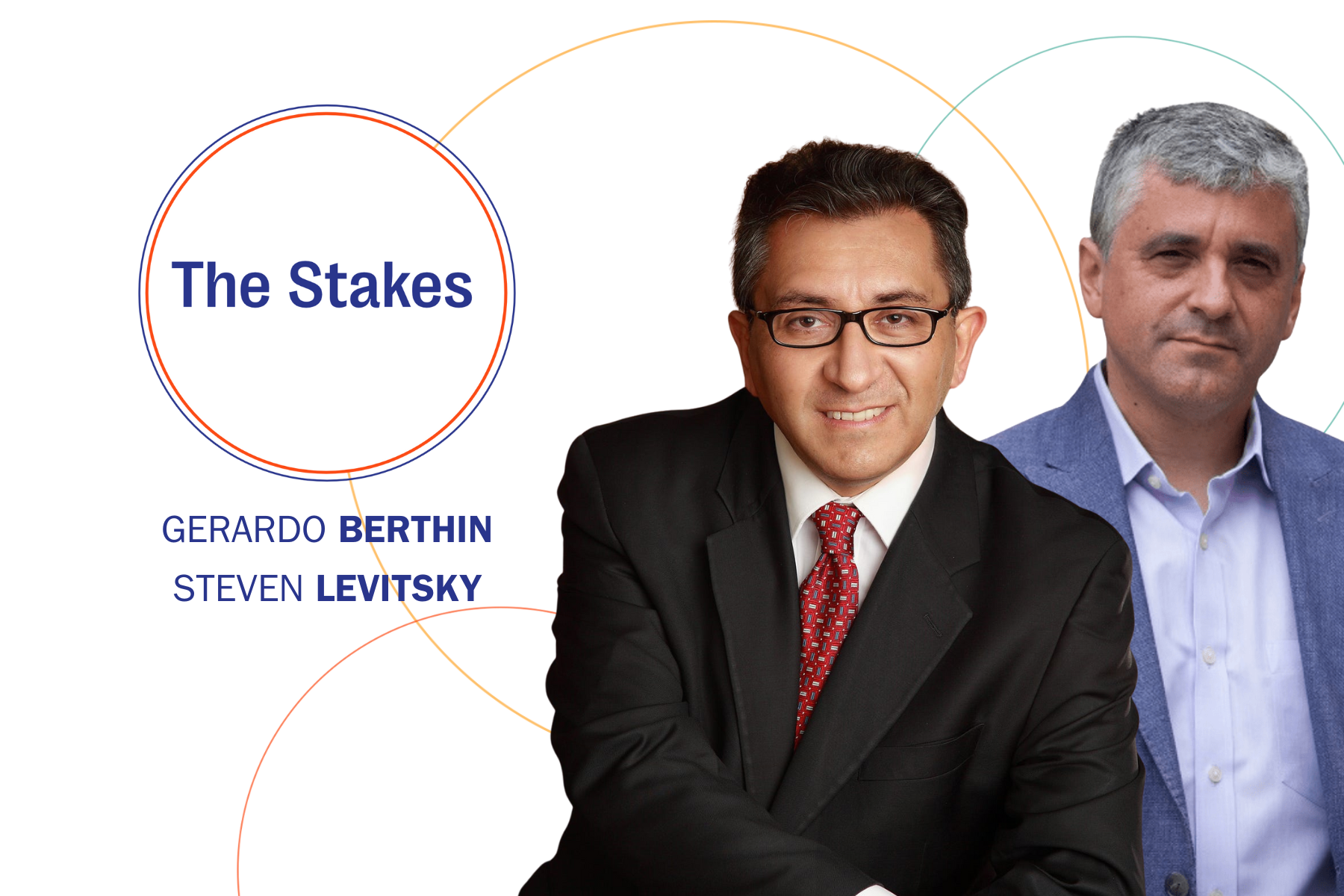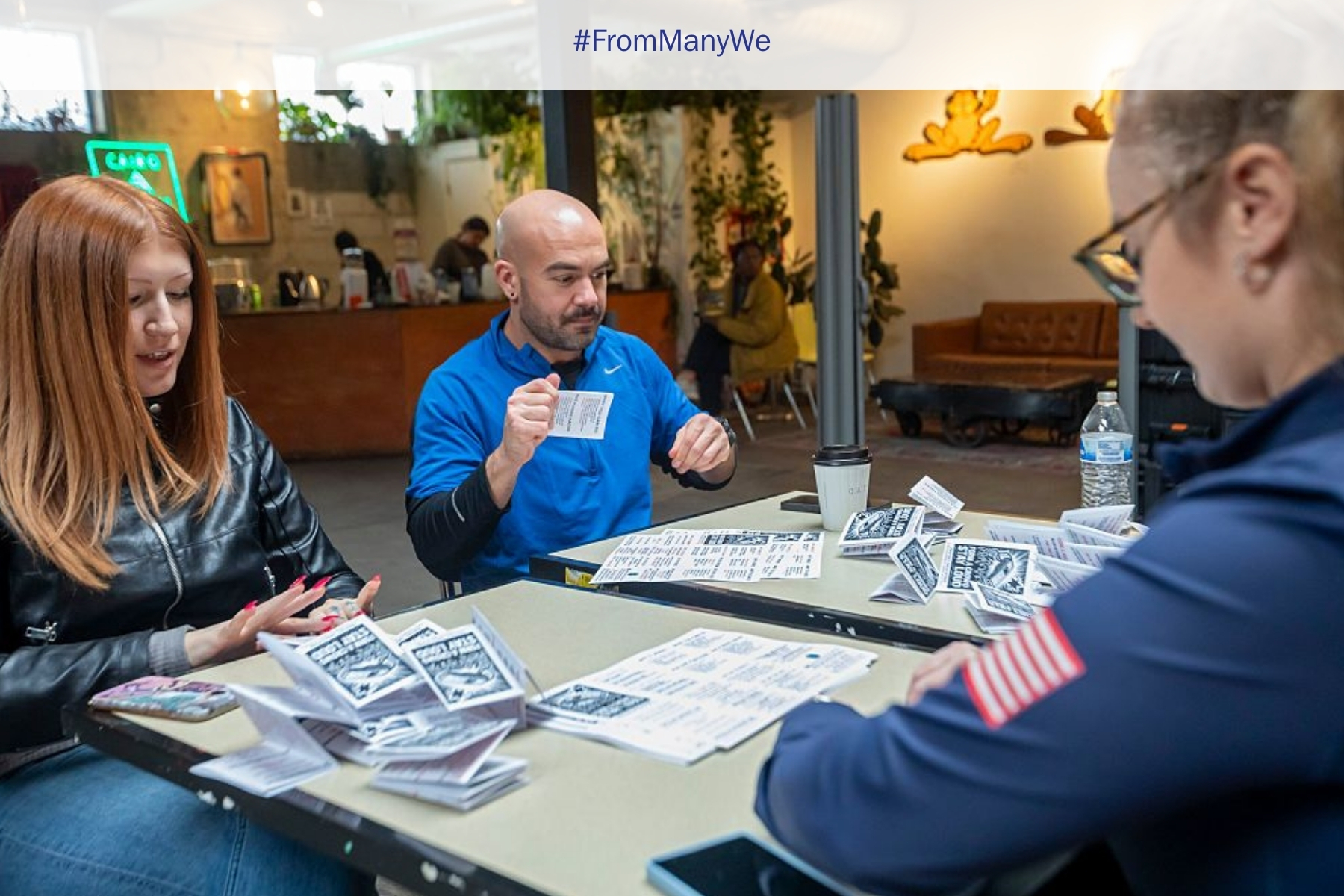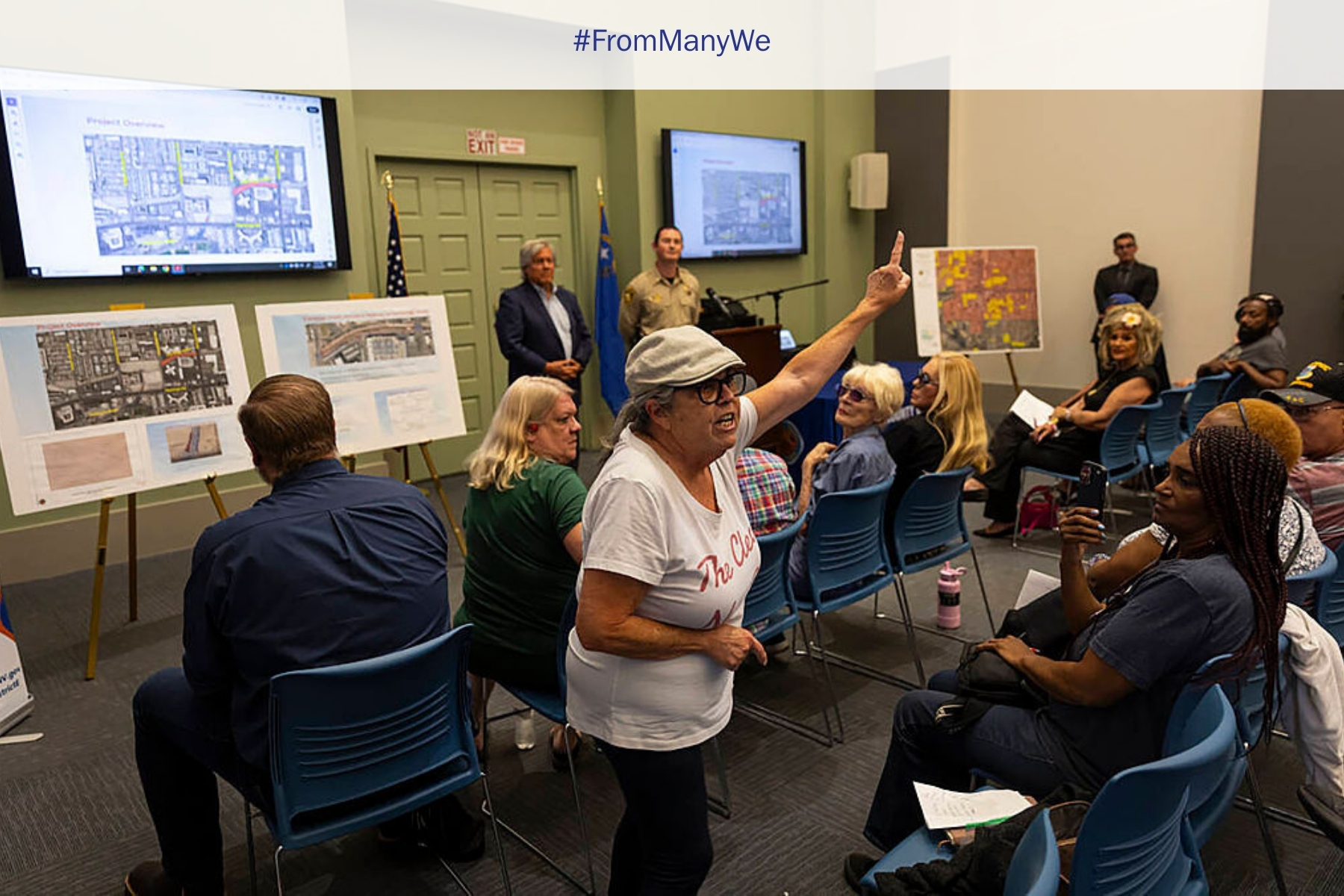Moral Mondays in the Nation’s Capital
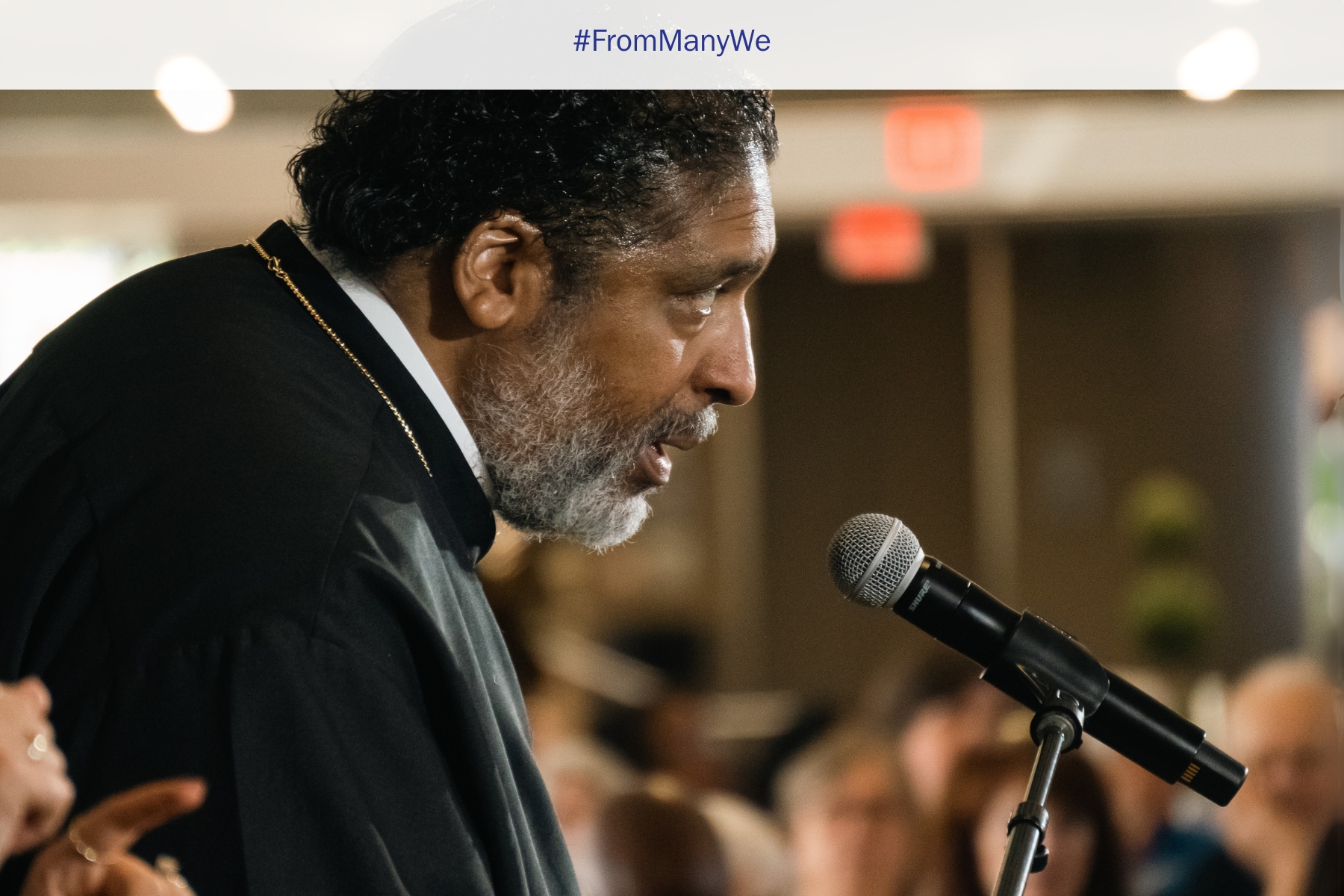
On April 28, 2025, Capitol police arrested the Rev. Dr. William J. Barber II for praying in the Rotunda. This news left me outraged but utterly unsurprised.
Barber, a Charles F. Kettering Foundation senior fellow, is also president of Repairers of the Breach, a professor and founding director of the Center for Public Theology and Public Policy at Yale Divinity School, cochair of the Poor People’s Campaign, and bishop with The Fellowship of Affirming Ministries. He articulates better than most precisely what is wrong with the misguided priorities of a Congress that, too often, treats the neediest as afterthoughts. This was the subject of his prayers under the Capitol dome before his arrest. Truth can be hard to hear, but one would think that in the very temple of our representative democracy, the First Amendment rights to free speech and the free exercise of religion would not be questioned.
Not so, apparently.
Protest through Research and Prayer
Barber’s Repairers of the Breach began “Moral Mondays in DC” as a form of prayer and protest over a proposed federal budget that slashes services and food assistance for the poor while giving tax breaks to corporations and the wealthy. They are scheduled once a month through September, inviting clergy and ordinary people to gather, directing attention to the ways in which our government is failing to help the poor. Barber began Moral Mondays in his home state of North Carolina in 2013 protesting and praying outside the state capital. At that time, the Republican Party had won the governor’s office and both houses of state government. In response to the policies that followed, such as cutting unemployment and voting against Medicaid healthcare expansion for the poor, Barber, other religious leaders, and protesters rallied every week on Mondays, focusing on the harm that government action caused.
Whether Barber’s Moral Mondays take place in DC, North Carolina, or elsewhere, they always use facts and research—a staple of Barber’s approach—intertwined with prayer. The research is conducted with assistance from the Institute for Policy Studies.
“Bishop Barber is a stickler for facts. He always says, ‘Do not be loud and wrong,’” said Rev. Hanna Broome. She is national director for religious affairs for the Repairers of the Breach as well as the president of the North Carolina Council of Churches.
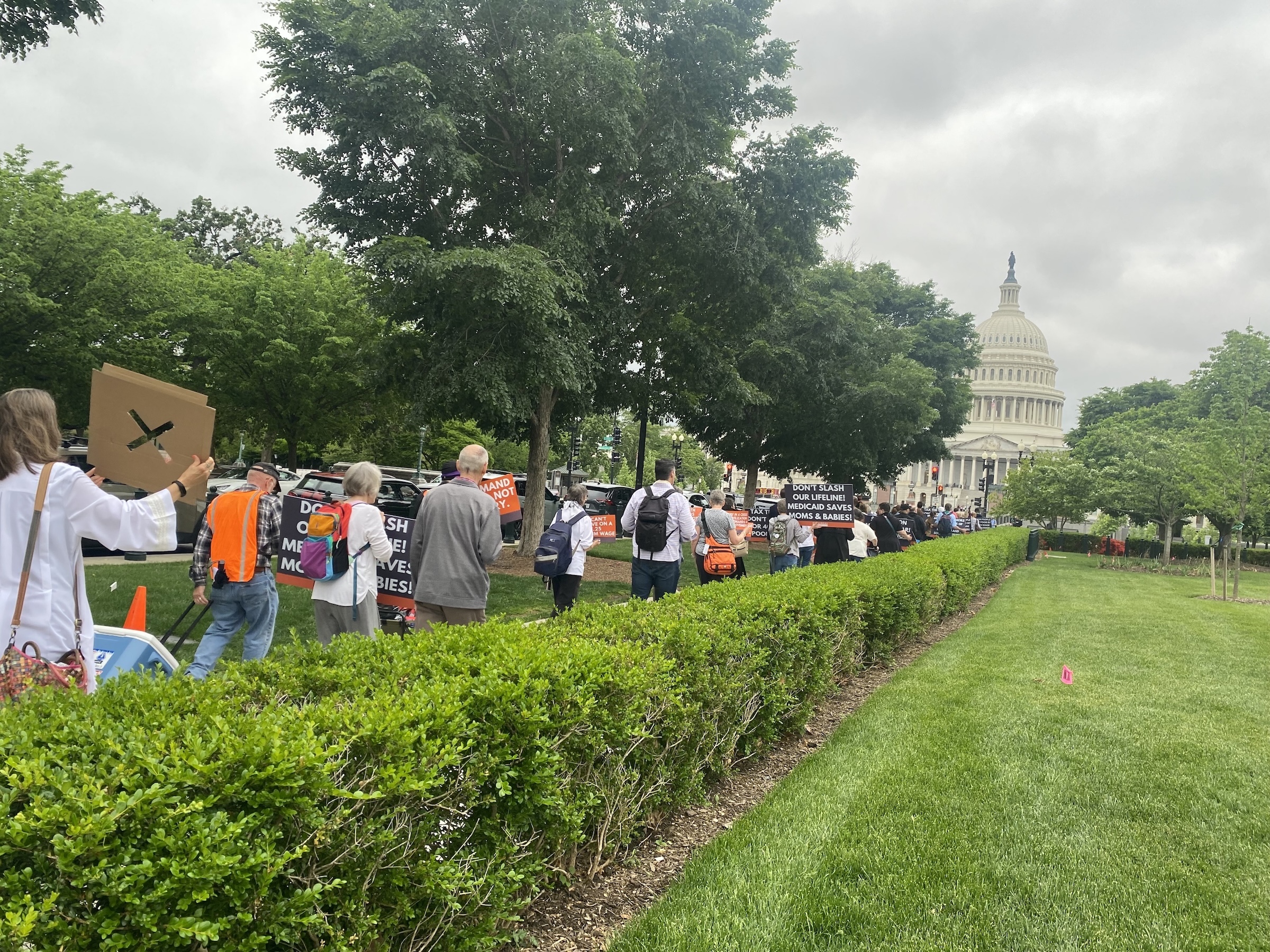
Progress and Persistence
In the 1960s, I was too young to attend the great marches for civil rights, and I was in high school when the Vietnam War ended. Yet I often reflect that there is still plenty to protest about today concerning our imperfect democracy. I was eager to attend and observe a Moral Monday in person. On May 5, I headed toward St. Mark’s Episcopal Church where people would gather before marching the few blocks to the US Supreme Court where the gatherings would take place.
Protests have been used throughout American history, but patience and persistence are just as important as a willingness to show up, I thought, as I walked from the Capitol South metro station to St. Mark’s.
Women fought for more than seven decades for the right to vote, from the call for woman suffrage at the 1848 Woman’s Rights Convention to the passage of the 19th Amendment in 1920. It took nearly 100 years for Black Americans to win suffrage even after the 15th Amendment granted voting rights to Black males in 1870. It took passing the Civil Rights Act in 1964 to bar the terror and discrimination that had kept most southern Blacks from ever casting ballots. Yet the Supreme Court weakened that landmark law in 2013 in Shelby County v. Holder, ruling that federal oversight of voting rules in states with a history of discrimination was no longer necessary. Since then, states have passed more than 100 laws with voting restrictions.
Meeting the Protesters
As I walked, I saw a sign that read “Moral Mondays” with an arrow pointing to St. Mark’s. There I found a crowd of people, some standing and some seated around tables and all talking about the direction public policy is taking in America. Many of them were clergy from various denominations. I picked a table and introduced myself.
Rev. Lisa Bovee-Kemper, who occupied the seat next to me, is a veteran of Moral Mondays. She lived in North Carolina when they began and joined the combined prayer and protest at the state capital in Raleigh. “It worked,” she said proudly.
“In December of 2023, Medicaid expansion passed, but it took 10 years of organizing across the state to make it happen,” she said. She is interim minister of the Unitarian Universalist congregation of Columbia, Maryland, one of several clergy at the table.
Rev. Kristin Grassel Schmidt, minister of the Unitarian Universalist church of Silver Spring, Maryland, agreed. “The moral injury being done right now is incredible” due to government actions such as cutting programs for the poor and abruptly curtailing federal agencies, laying off thousands.
The table was covered with literature that detailed the proposed budget from the White House and Republicans in the House of Representatives: cutting Medicaid by $880 billion through 2034, cutting the food stamp (SNAP) program by $230 billion through 2034, cutting childcare services through the Head Start program, and cutting federal rental assistance.
“There Must Be Moral Dissent”
Soon the room had filled to around 50 people. Organizers led us in prayers and songs before we filed out and began to walk, in an orderly line of two by two, toward the Supreme Court. A man outside the church passed out signs to each person, each with different messages in block letters, such as: “WE CAN’T SURVIVE ON A $7.25 MINIMUM WAGE” and “STOP CRUCIFYING DEMOCRACY!” Mine said, “MEDICAID SAVES MOMS AND BABIES,” an inarguable statement. The day was cloudy and cool and threatening rain.
The Capitol dome gleamed before us, but that wasn’t the destination; we turned right and came to a halt before the Supreme Court building. A few policemen watched from the top of the stairs outside the entrance of the court. It was clear they wouldn’t interfere. We made a semicircle, holding our signs.
Barber was ill that day, but he called in. His voice was amplified over a microphone and boomed over the street as curious passersby paused, and silence fell over our group.
He began by quoting the American theologian and educator Howard Thurmon, “The ultimate question of life is where we stand in relationship to the poor and disinherited.”
“We know that when the prophets prayed their prayers were not only prayers of words but preconditions to actions.” Barber said. The prophet Jeremiah, he said, told his followers to “Go down to the king’s house and stop hurting the poor, stop hurting the widows in a violent way.” Barber spoke about proposed cuts to the federal childcare program, Head Start, which were announced the previous weekend. People listening gasped and shook their heads.
Barber recalled his fight against voter suppression in North Carolina and how the legislature allocated $6 million in an attempt to counter his campaign. “But guess what? They lost,” Barber said. Protesters clapped and hooted in response.
“They lost because people came and prayed, but not only is Moral Monday about praying, Moral Monday is about people building powerful voting coalitions and registering people. Moral Monday is about getting our lawyers to fight everywhere so we can challenge these things in the courts. . . . We believe this is immoral, and wherever there is immoral destruction going on there must be moral dissent.” “Yes! Yes!” protesters responded.
“So, stand in your faith,” Barber continued. “Even a person without religious faith can pray if you believe in the moral arc of the universe. Prayer is not just words; it’s not just saying God’s name like a magic trick. Prayer is a lifestyle.”
He concluded, “I believe if America . . . really knows about this budget, and if we stay long enough and pray long enough, they will come alive and join the greatest moral movement of our time.
A Moral Budget
Broome, other ministers, and a rabbi spoke after Barber’s phone call, and their speeches flowed with moving rhetoric. But Broome’s speech truly roused the crowd.
She said, “Budgets are moral documents. . . . This budget that they are trying to pass is a shameful story. It may be written in ink, but it bleeds. It bleeds when Medicaid is slashed and 6 million risk losing care. It bleeds when SNAP is cut and 40 million face hunger. . . .It bleeds when bombs are funded but babies are deported. . . . it bleeds when Wall Street gets wealth and Main Street gets crumbs.”
“This is not a time for quiet pulpits,” Broome said, her voice rising. “This is an hour of sacred confrontation. . . . Now, I say to you, clergy, elders, youth, workers, teachers, nurses, and neighbors: Do not wait for the right moment, this is the right moment! Do not wait to be invited, you have been commissioned! Do not wonder if your voice matters, it does, because you are a moral witness. . . . Raise your voice! Raise your voice!” The crowd shouted in response to her exhortations. Rain sprinkled but didn’t dampen onlookers’ enthusiasm.
The experience was truly inspiring. The protests of the 1960s may have passed me by, but there is always a need to be a “moral witness,” to consider the issues of our time and proposed solutions against the timeless values of caring for the poor, the elderly, and those who struggle. Barber’s call insists that we not look away from social ills and instead decide where we stand in the here and now.
We may not be the prophet Jeremiah, but we have voices, and they are louder and more powerful when we raise them together.
Maura Casey is a former editorial writer for The New York Times. She has written for the Kettering Foundation since 2009.
From Many, We is a Charles F. Kettering Foundation blog series that highlights the insights of thought leaders dedicated to the idea of inclusive democracy. Queries may be directed to fmw@kettering.org.
The views and opinions expressed by contributors to our digital communications are made independent of their affiliation with the Charles F. Kettering Foundation and without the foundation’s warranty of accuracy, authenticity, or completeness. Such statements do not reflect the views and opinions of the foundation which hereby disclaims liability to any party for direct, indirect, implied, punitive, special, incidental, or other consequential damages that may arise in connection with statements made by a contributor during their association with the foundation or independently.
